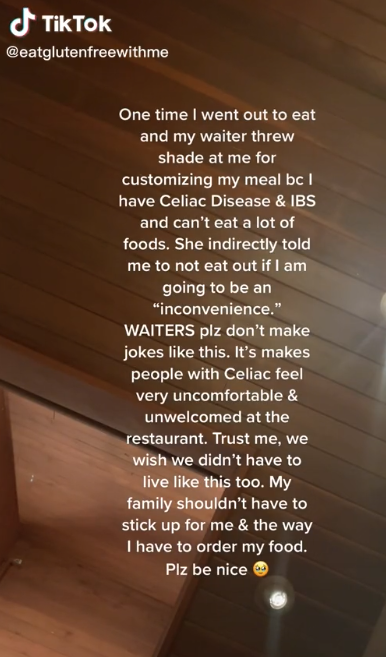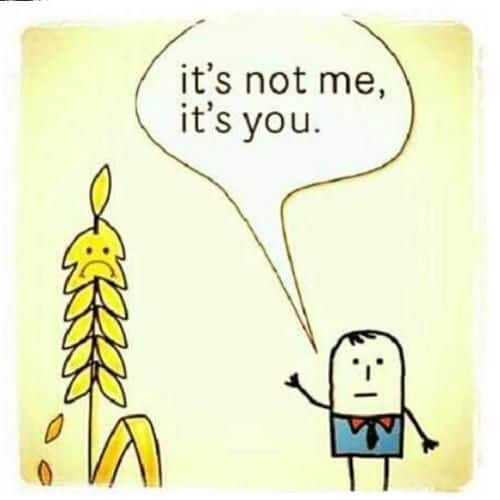If you are living gluten free, you are probably aware that May is Celiac Awareness Month. And unless you’ve been on an extended vacation, you have surely seen the uptick in “news” stories about the gluten free diet during May.
The media has covered every angle: the incredible market potential for gluten-free products; how supposedly easy it is to be gluten free these days; the latest celebrities losing weight on a gluten-free diet ….
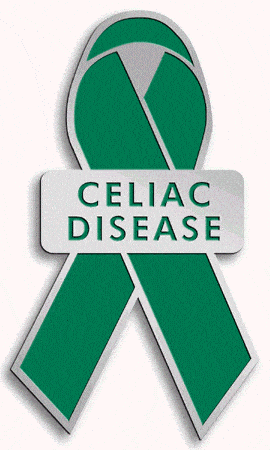 Well, almost every angle. Which is why I’m sharing this angle on June 1. Celiac Awareness Month should be the catalyst for the conversation, not the conclusion. Here’s why.
Well, almost every angle. Which is why I’m sharing this angle on June 1. Celiac Awareness Month should be the catalyst for the conversation, not the conclusion. Here’s why.
Why Spread Celiac Awareness
The reality of living gluten free for medical reasons isn’t sensational, and therefore isn’t typically covered by the mainstream media. In fact, there is little that could be considered glamorous about actually living without gluten for the rest of your life.
But that is what Celiac Awareness is really about: spreading the word that gluten might be at the root of what ails you; sharing information on how to get tested; explaining to others how to safely go gluten free for better health; and correcting the untruths that persist about those of us living gluten free. {Need to know what celiac disease is, how to get tested, who should get tested and more? – this article explains it all}
For us, May is a time when it may be most relevant to have the real life conversations about how difficult it can be to avoid gluten in a society whose diet is built upon it, but this topic is fair game any time.
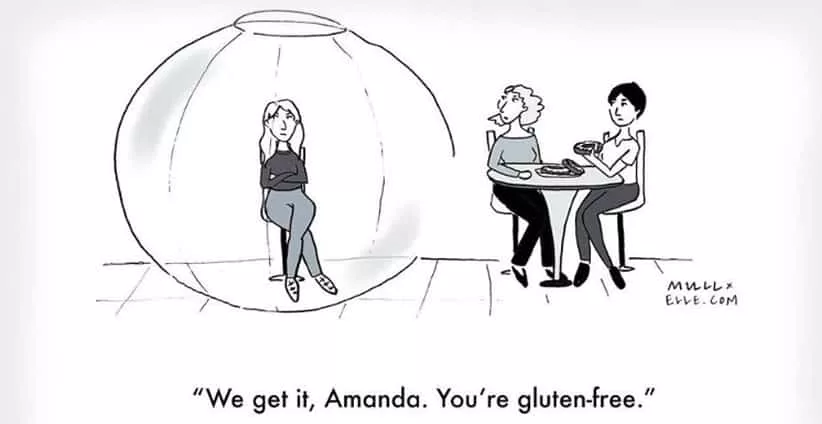
This conversation needs to happen because we need to correct the misperceptions about what it’s like to live without gluten and why we might be doing it. {For more information on other very real reasons to be gluten free, this article covers them – click here}
And we need to honestly discuss what others say to and about us because of our “diet.” It’s only through education that we can help others and change minds.
Indeed there is plenty to complain about when it comes to living gluten free not by choice, but by necessity.
From waiters not taking us seriously to coworkers teasing that we’re being overly particular if we refuse to simply pick the croutons off the salad in the lunchroom, we gluten-free’ers have some pretty disheartening stories to share about the ignorance of the general population when it comes to celiac disease and gluten sensitivity. (For gluten free ideas at work and in the lunchroom this article will help!)
 It can be easy to get beaten down by the sheer number of ignorant comments and to stop trying to explain yourself. To hear more on this topic, listen to the free podcast of my chat with Gluten Dude about Celiac Awareness Month on The Gluten-Free Voice Radio Show.
It can be easy to get beaten down by the sheer number of ignorant comments and to stop trying to explain yourself. To hear more on this topic, listen to the free podcast of my chat with Gluten Dude about Celiac Awareness Month on The Gluten-Free Voice Radio Show.
But rather than dwell on these unfortunate and too-regular occurrences, I urge you to treat these interactions as opportunities. If you impart even one fact to every well-meaning friend or uninformed waitress about the severity of the gluten effect on some of us, think how much awareness you could spread.
Think how many others might actually learn that gluten was making them sick, too? Think who might actually prompt their doctors to test them for celiac disease because they first heard about it because of you?
Let me explain by way of example.
A few years ago at a book signing in another state, a young woman approached my table with tears in her eyes and she asked if she could hug me. She related that she had been sick for years, with progressively worsening symptoms and no answers from her doctors. She knew every bathroom at every convenience store between her home and her work. She only wore elastic waist pants because her bloating was so bad throughout the day that her dress size would change from morning to night. She couldn’t go out and socialize with friends anymore because of her gastric distress and she finally had her gall bladder removed because the doctors couldn’t find any other potential cause for her ailments. Unfortunately, her symptoms only worsened after the surgery.
A few days before my book signing, she got a call from a hairdresser friend. Apparently, her friend was in the middle of cutting a customer’s hair when that customer mentioned my book. She shared with the hairdresser about her own celiac symptoms and that she was going to the signing to meet me since my book had helped her so much with transitioning to a gluten-free lifestyle. After hearing her symptoms, the hairdresser actually put down her scissors to call her friend in the middle of the haircut to tell her that she thought she must have celiac disease too.
After the call, the young woman immediately got my book and read it before my signing. She then came to tell me that she was convinced that she had celiac disease, despite that fact that no doctor had ever mentioned it or tested her for it before. She now felt empowered to insist that her doctor test her, and was going to try a gluten-free diet, no matter what the test results showed. She said that she would do anything to not have to feel this way any longer, and was buoyed at the thought that a change in her diet could actually change her life. The unfortunate flip side was that she was despondent that she hadn’t known about this potential diagnosis earlier, so that she might have been spared years of embarrassing and painful symptoms as well as an unnecessary and costly surgery.
Help Others by Sharing Information on Celiac and Gluten Sensitivity
The point of the story is not that this woman ended up diagnosed with celiac disease or gluten sensitivity. It is that she was first alerted to the possibility that she might have symptoms controlled by a gluten-free diet only because a stranger told her friend about their own experiences with celiac disease.
If we each tell one person something about the realities and seriousness of celiac disease and gluten sensitivity, think how many other lives could be affected by that information. Your tip could help spare someone the agony of unexplained symptoms and years of poor health. My own grandfather was diagnosed with celiac disease at age 81. He died soon thereafter. How long was his body fighting and weakening itself because of this un-diagnosed autoimmune disease?
I’m sure you have as many questions as I do about why it took so long to find out gluten was harming you. It took me 10 years of going to loads of doctors and having test after test to get the right diagnosis of celiac disease, and average time to diagnosis isn’t much better today — experts say the average time to diagnosis of celiac disease today is between 6-10 years.
Please share information with others, and leave your story in the comments here, to help shed light on the very real repercussions of our western society relying so heavily on prescriptions and tests as the only answers for our health problems.
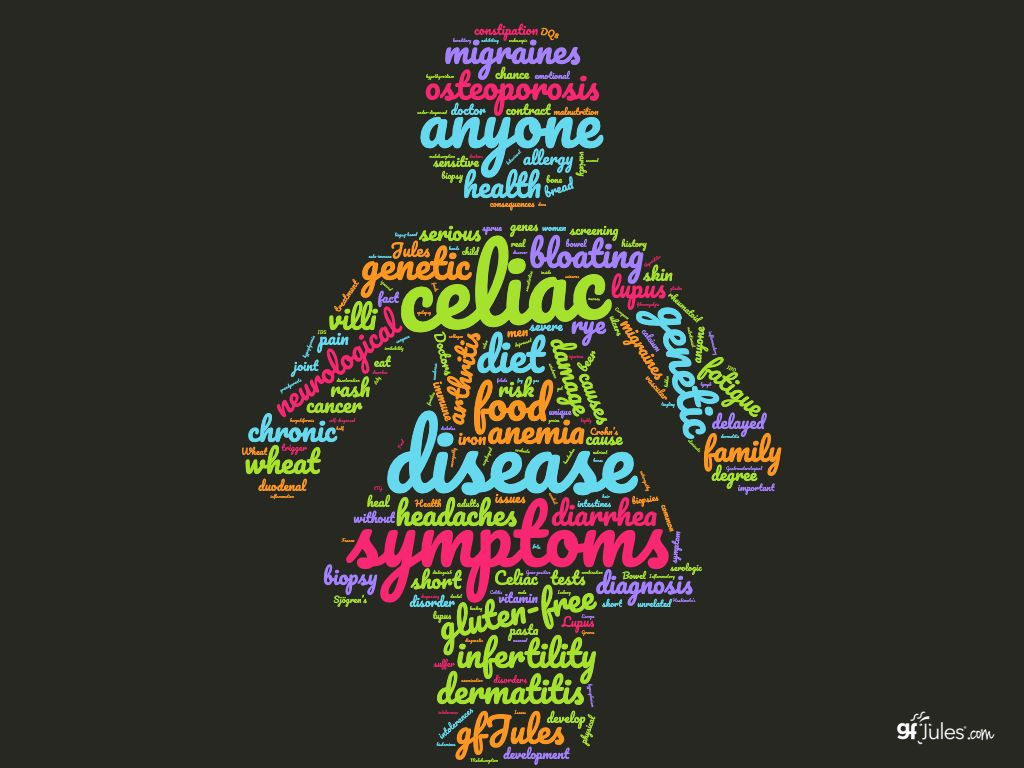
Show Others the Gluten Free Diet is Serious
Another idea: take it a step further, and teach your waiter something the next time you are out for a gluten free meal. There is still far too much misinformation in the news media about the gluten-free diet and the faddishness of it all. If you could help combat the perceived trendiness of the diet with hard facts about gluten and the reasons many people must avoid it altogether for their health, you could help the next gluten-free patron to enjoy a safe meal.
Think about if you had known how a gluten-free diet could change your life months or years before you tried it. What could you have been spared? Pay it forward and spread the facts. We certainly can’t rely on the news media to do it for us.
Please feel free to comment below. Share your story of diagnosis or recovery, how you spread celiac awareness, or other reasons you have to be grateful for a gluten free diet.
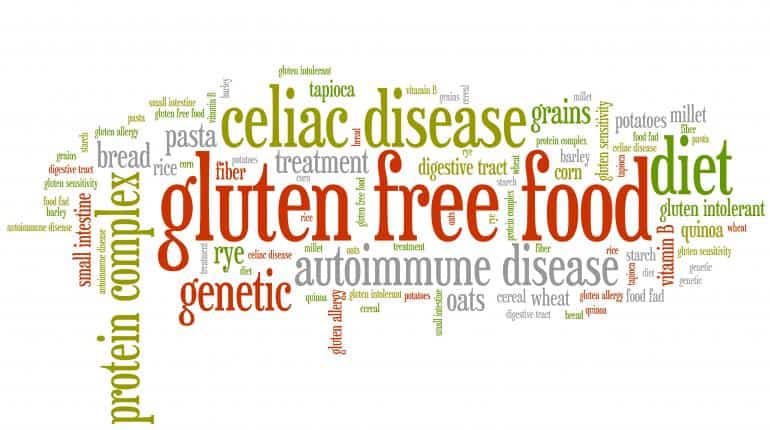
The post Celiac Awareness Month, Every Month appeared first on Gluten free recipes - gfJules - with the #1 Flour & Mixes.
